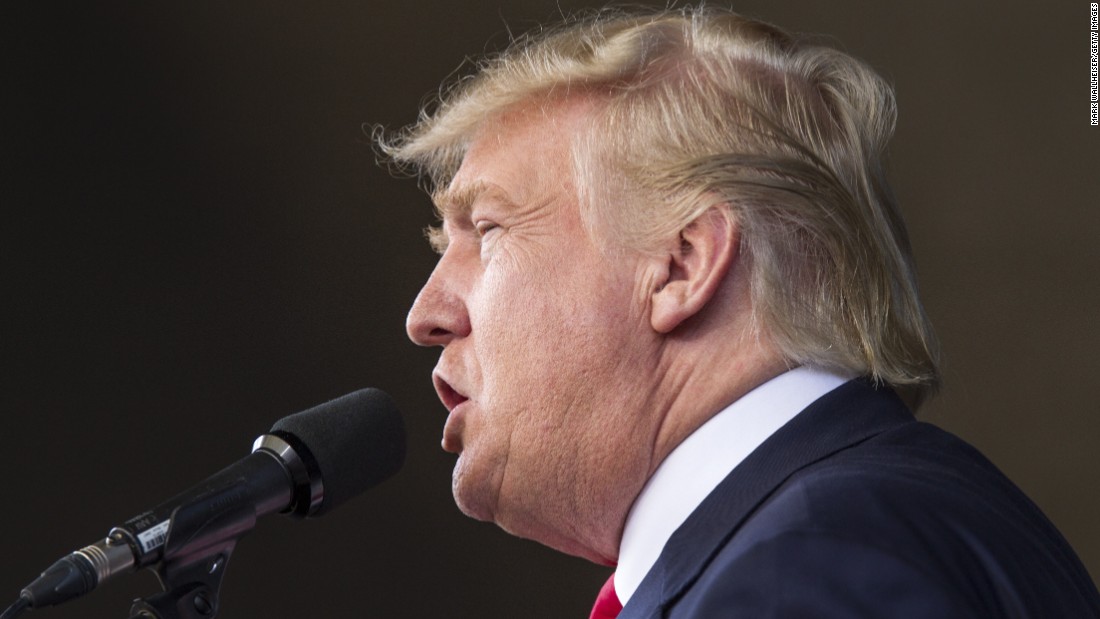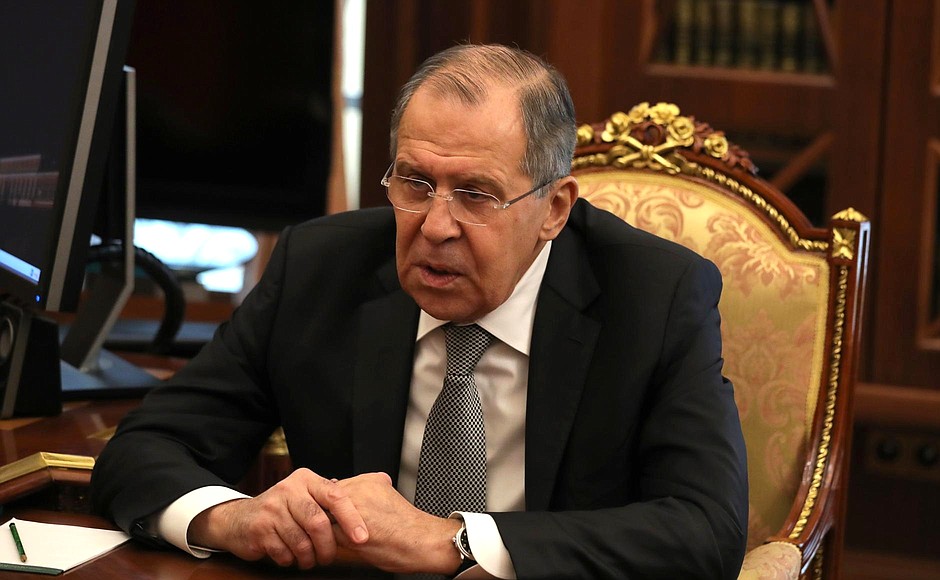The world is increasingly becoming a stage for geopolitical tensions, and the recent statement by former U.S. President Donald Trump warning of the risk of World War III has sent shockwaves across the globe. Trump's remarks come at a time when international relations are fragile, with various regions experiencing heightened conflict. The possibility of such a catastrophic event raises important questions about global stability and the role of leadership in preventing escalation.
As a leader who has been at the forefront of international politics, Trump's warnings cannot be ignored. His insights, although controversial, often reflect a deep understanding of the complexities in global affairs. Whether or not his predictions come true, his statements demand serious attention from policymakers and the public alike.
This article will delve into the details of Trump's warning, the geopolitical context behind it, and its implications for global peace. We will also explore potential solutions and the role of international cooperation in mitigating such risks. By examining this issue thoroughly, we aim to provide readers with a comprehensive understanding of the situation and its possible outcomes.
Read also:Asher Grodman Dating
Table of Contents
- Biography of Donald Trump
- The Context of World War III
- Trump's Statement on WWIII Risk
- Geopolitical Tensions and Their Impact
- The Role of Military Power
- Economic Factors Influencing Global Stability
- Diplomatic Efforts to Prevent Conflict
- Public Opinion and Perception of Risk
- A Historical Perspective on Global Conflicts
- Conclusion and Call to Action
Biography of Donald Trump
Early Life and Career
Donald J. Trump was born on June 14, 1946, in Queens, New York. He is the fourth child of real estate developer Fred Trump and Mary Anne MacLeod. Trump's early life was marked by his education at the New York Military Academy and later at Fordham University before transferring to the University of Pennsylvania's Wharton School.
Below is a summary of his personal and professional details:
| Full Name | Donald John Trump |
|---|---|
| Date of Birth | June 14, 1946 |
| Place of Birth | Queens, New York |
| Profession | Businessman, Television Personality, Politician |
| Political Affiliation | Republican Party |
Political Career
Trump served as the 45th President of the United States from January 20, 2017, to January 20, 2021. His presidency was characterized by bold policy decisions, including significant changes in U.S. foreign policy. Despite his controversial reputation, Trump's leadership style often emphasized strong national sovereignty and a focus on international trade negotiations.
The Context of World War III
The concept of World War III has long been a topic of discussion among scholars, policymakers, and the general public. In recent years, the risk of global conflict has increased due to several factors, including territorial disputes, economic sanctions, and cyber warfare. Trump's warning about WWIII risk highlights the urgency of addressing these issues before they escalate into full-blown military confrontations.
Trump's Statement on WWIII Risk
In a recent speech, Donald Trump explicitly warned about the possibility of World War III. He stated, "We are closer to a major global conflict than ever before." This alarming statement has sparked widespread debate about the current state of international relations and the potential consequences of continued aggression between nations.
Trump's warning is not without precedent. Throughout his presidency, he frequently spoke about the dangers of unchecked military expansion and the importance of diplomacy in resolving disputes. His emphasis on strengthening alliances and maintaining a robust national defense has been a cornerstone of his foreign policy philosophy.
Read also:Pemba Social Impact Careers
Geopolitical Tensions and Their Impact
Regional Conflicts
Several regions around the world are currently experiencing heightened tensions. The ongoing conflict in Ukraine, the situation in the South China Sea, and the Israeli-Palestinian dispute are just a few examples of areas where the risk of escalation is significant. These conflicts not only threaten regional stability but also have the potential to draw in major global powers, increasing the likelihood of a broader war.
Global Power Dynamics
The shifting balance of power between major nations, particularly the United States, China, and Russia, has added another layer of complexity to international relations. Each country's pursuit of strategic interests often leads to clashes over trade, technology, and territorial claims. Understanding these dynamics is crucial in assessing the risk of global conflict.
The Role of Military Power
Military strength remains a critical factor in determining a nation's influence on the global stage. Advances in technology and weaponry have made modern warfare more lethal and far-reaching than ever before. Countries with significant military capabilities, such as the U.S., China, and Russia, must exercise caution in deploying their forces to avoid unintended consequences.
Nuclear Proliferation
The proliferation of nuclear weapons poses one of the greatest threats to global security. Efforts to control the spread of nuclear technology have been ongoing for decades, but challenges remain. Trump's administration played a key role in renegotiating agreements like the Iran Nuclear Deal, highlighting the importance of such initiatives in reducing the risk of nuclear conflict.
Economic Factors Influencing Global Stability
Economic interdependence among nations can act as both a stabilizing force and a source of tension. Trade wars, currency manipulation, and economic sanctions often lead to strained relations between countries. As Trump warned, the economic health of nations is closely tied to their ability to maintain peace and stability.
Global Supply Chains
The disruption of global supply chains during the pandemic has exposed vulnerabilities in the world economy. Dependence on specific regions for essential goods and resources can exacerbate tensions during times of crisis. Ensuring the resilience of supply chains is essential in preventing economic shocks that could lead to conflict.
Diplomatic Efforts to Prevent Conflict
Diplomacy remains the most effective tool in resolving disputes and preventing war. International organizations like the United Nations and regional bodies play a vital role in facilitating dialogue between conflicting parties. Trump's administration often prioritized bilateral negotiations, arguing that direct engagement could yield better results than multilateral approaches.
Peace Treaties and Agreements
Historically, peace treaties and agreements have been instrumental in ending conflicts and fostering cooperation. The Abraham Accords, brokered under Trump's leadership, serve as an example of successful diplomatic efforts in promoting peace in the Middle East. Such initiatives demonstrate the potential for positive change through constructive dialogue.
Public Opinion and Perception of Risk
Public opinion plays a significant role in shaping government policies related to national security and foreign affairs. Citizens' perceptions of the risk of war can influence political decisions and the allocation of resources. Trump's warnings about WWIII risk resonate with many who are concerned about the state of global affairs.
Media Influence
The media's portrayal of international events can either amplify or mitigate fears about potential conflicts. Responsible journalism is essential in providing accurate information and fostering a well-informed public. Trump's relationship with the media has been contentious, but his ability to communicate directly with the public through social media has allowed him to shape narratives in unique ways.
A Historical Perspective on Global Conflicts
Studying past conflicts can provide valuable insights into preventing future wars. The lessons learned from World War I and World War II emphasize the importance of cooperation, diplomacy, and collective security. Trump's warnings about WWIII risk draw parallels to these historical events, reminding us of the devastating consequences of global conflict.
Technological Advancements
Technological advancements have transformed the nature of warfare over the years. From the development of nuclear weapons to the rise of cyber warfare, the tools of modern conflict are more sophisticated and far-reaching than ever before. Understanding these changes is crucial in addressing the risks posed by emerging technologies.
Conclusion and Call to Action
Donald Trump's warning about the risk of World War III serves as a wake-up call for global leaders and citizens alike. The complexities of modern international relations demand careful consideration and proactive measures to prevent escalation into full-scale conflict. By strengthening alliances, promoting economic stability, and prioritizing diplomacy, we can work towards a more peaceful world.
We invite readers to engage in this critical discussion by sharing their thoughts and insights in the comments section below. Additionally, exploring other articles on our site can provide further context and understanding of the issues at hand. Together, we can contribute to a safer and more secure future for generations to come.


